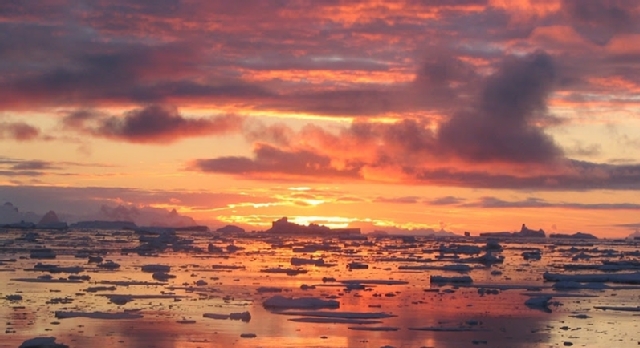Page 66 • (1,089 results in 0.032 seconds)
-

Biomimicry 3.8 founder to speak at PLU’s annual Rachel Carson Lecture Posted by: Silong Chhun / February 17, 2022 February 17, 2022 By Veronica CrakerPLU Marketing and CommunicationsPacific Lutheran University is excited to welcome Dayna Baumeister, a professor at Arizona State University who holds a doctorate in organismic biology and ecology, to deliver the 2022 Rachel Carson Science, Technology and Society Lecture.Baumeister will present “(Re)Buiding a Thriving World–Mentored By Nature’s
-
, Provost, Pacific Lutheran University Robert M. Wells, Communications Department, Pacific Lutheran University George Weyerhaeuser FACULTY STAFF CONSULTING COMMITTEE Charles Bergman, English Department Chrissy Cooley, Sustainability Coordinator Peter Davis, Geosciences Department Jacob Egge, Biology Department Peter Grosvenor, Political Science Department Rose McKenney, Environmental Studies Department Kevin O’Brien, Religion Department Ksenija Simic-Muller, Mathematics Department Nicole Sheer
-
. Each test results in a numerical score of 200-400. The results are scaled such that a score of 300 represents the average national performance. The four tests are as follows: Survey of Natural Sciences = 90 minutes, 100 questions – 40 questions cover biology, 30 questions cover general chemistry, and 30 questions cover organic chemistry Reading Comprehension = 50 minutes, 40 questions – three reading passages each with 13 or 15 questions about each passage Physics = 50 minutes, 50 questions
-
. Each test results in a numerical score of 200-400. The results are scaled such that a score of 300 represents the average national performance. The four tests are as follows: Survey of Natural Sciences = 90 minutes, 100 questions – 40 questions cover biology, 30 questions cover general chemistry, and 30 questions cover organic chemistry Reading Comprehension = 50 minutes, 40 questions – three reading passages each with 13 or 15 questions about each passage Physics = 50 minutes, 50 questions
-

disparities, like folks who live in the middle of nowhere and their closest doctor is an hour away and the closest specialist is eight hours away,” Chell said. “So, to see this free clinic situated across the street from a phenomenal hospital and people need to access it, was fairly eye-opening to urban health disparities.” Her passion to understand and help create health equity began while she was a student at PLU. As a global studies major and biology minor, Chell says she thrived in the
-
dental school, or another heath science professional school. For Jensen, this meant working with Matt Smith, associate professor of biology and chair of the department. Smith is one of six natural science professors on the Health Sciences Committee. At PLU, most students on the health-sciences track work through the biology curriculum and take an entire year of organic chemistry. By the junior year, with most of the lower-division classes out of the way, students select classes and extra-curricular
-

methods, deepened my love for organic chemistry, and gave me confidence for the challenges ahead. This summer research experience has directed me towards my desired path in chemistry, where I aspire to make significant contributions to creating complex organic molecules.” Grady Lemma ’25 | Biology and Chemistry major Learning problem-solving “Along with the technical experience that I gained, I think that my experience with Dr. Yakelis helped me understand the type of problem-solving that research
-

graduated in 2022 with a degree in biology. At first, Ambachew thought she’d go into computer programming and user experience design by majoring in computer science. In her first year at PLU, a Microsoft internship taught her about software engineering and product management. Ambachew dove into the field, working part-time during the school year and full-time one summer with Geeking Out Kids of Color (GOKiC). GOKiC is a Seattle-area after-school and summer program offering multicultural STEM education
-
our experience. Central themes include evolution, conservation and environmental awareness. This seminar will include an itinerary with suggested readings and discussions. The program included seven nights on a ship in the Galápagos Islands, stays in Quito and visits to the wonderful colonial center of town, and two nights in the nearby forests of the Andes Mountains. For those interested, there were optional excursions to Peru: Cusco, the Inca Trail, the Sacred Valley, and Machu Picchu. Galápagos
-

English literature. Since that epiphany, Barlow has become a leading voice on water conservation and the view that it is a resource that should be conserved and administered as a public, not private resource. Maude Barlow She has authored 16 books, including “The Politics of Water”, “Blue Gold” and her most recent book “Blue Covenant” (2007, The New Press). Barlow is the recipient of 11 honorary doctorates as well as many awards, including the 2005 Right Livelihood Award (known as the “Alternative
Do you have any feedback for us? If so, feel free to use our Feedback Form.


